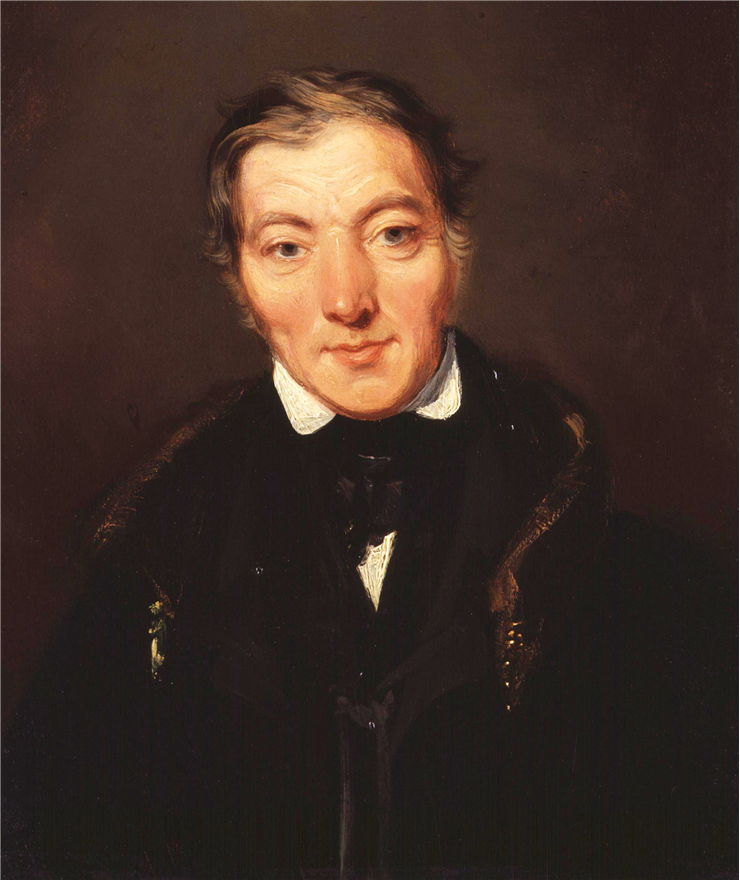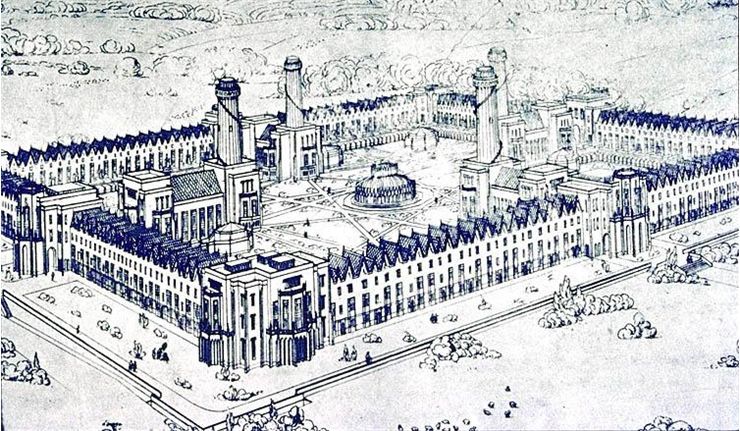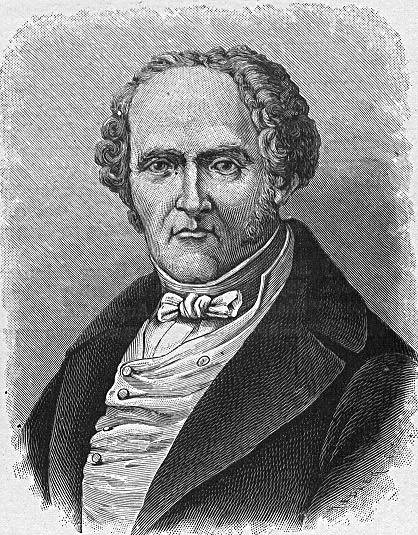The Utopian Socialism Movement
The birth of the first modern socialist thought brought not only the changes in our modern politics but also new forms of art that promoted the views of the utopian socialism movement. Although any modern socialist movement can technically be called utopian, this term is today most often applied to the earliest socialists who lived during the early 19th century, where the name "utopian" negatively described their unrealistic ideas. Examples of that can be found in the initial works of socialist founders such as Karl Marx and Friedrich Engels whose visions of the future were mostly focused on the expansion of the principles of French revolution which did not always aligned with a modern depiction of peaceful utopia. Their views of utopian society were not always peaceful and consisted from rigidly conforming to the scientific method of creation of balanced society.
The Utopian Socialism movement played a very big role in the history of the Utopian literary genre.
The root of modern utopian socialism can be found in Ancient Greece and the works of the famous philosophers Plato and Aristotle who both described in their works perfect societies. Those old ideas were forged into utopian socialism movement by philosophers who started opposing the appalling consequences of industrial revolution. Tremendous increase in the manufacturing capabilities and the creation of new class of oppressed workforce pushed some of the best minds of the 19th century into open opposition to capitalism. The works of the utopian socialism authors reflect their wishes for more just humanitarian world, where inhumanities of their age would be eliminated, and the future in which modern society will finally found balance between men, work, education, progress, and nature, with open opposition to the indifference of the rulers, rigid laws, selfishness and acquisitive individualism. Utopian socialist also very much promoted their futuristic views of the world with strong morals, hope, happiness and faith, which caused strong reactions of both inspiration and ridicule in the population who came in contact with their works. Almost all socialists authors adopted these ideals, but where utopian socialism movement differed from general socialism was in the means of how mankind could reach this better state (the ways in which current power would be taken from a government for example). Influential Marx’s socialism movement was based on the grounds of strict scientific approach, while utopian socialism ideas were much looser and based on looser ideas, rhetoric and pure belief that modern societies can organize themselves better using consensus and peaceful public discussion.
The first utopian socialist was without the doubt the English philosopher and author Thomas Moore (1478-1535). His 1516 novel "Utopia" (which popularized word "utopia" in modern times) described the need for the creation of a state that practiced religious toleration, freedom of marriage, simpler communal life, free education and health care. He wrote this highly influential book guided by his frustration with the current political state in late 15th and early 16th century England, where he directly served English King Henry VIII as councilor, and for three years as Lord High Chancellor of England. The book “Utopia” (whose title was a pun on two Greek words – “ou-topos” (no place) and “eu-topos” (good place)) followed the fictional narrator who compared the struggles of modern life in the city of Antwerp to the situation in the imaginary Greek island where life was made simpler by the much simple laws, promotion of public social gatherings, communal ownership, equal education for everyone and almost complete religious tolerance.
After the release of Utopia, many authors across England and Europe took its ideas and used them to create the new literary genre that managed to survive all up to modern time. This genre was not closely connected to socialist movement but was instead used to explore various thoughts. Francis Bacon’s utopian novel “New Atlantis” from 1624 explored future society where discovery, knowledge, and generosity were highly praised. This book served as the direct inspiration for the creation of the British Royal Society in 1660, which promoted education, exploration of new modern sciences, sharing of knowledge, and fueled the creation of first modern universities.
Moore's utopian vision gained additional popularity in the 19th century with the publication of several highly influential socialist works. Although they did not call themselves "utopian", ideas of Karl Marx and Friedrich Engels talked about visions and goals for the creation of utopian societies where people lived like equals. The distinction between utopian socialists and other modern movements were made in the Friedrich Engels' 1892 book called "Socialism: Utopian and Scientific", in which he described them as ones who want to transform France into country with rational society, economy and their willingness to make those changes without struggle between classes or political revolutions. To him, utopian socialists claimed that they could achieve their goals with the help of like-minded people within existing society.
The popularity of utopian socialism gave birth to one of the biggest waves in utopian literature. During the 19th century, many utopian philosophers and writers tried to describe their ideas either in written form or by trying to realize their dreams in reality. Successful Welsh businessman Robert Owen (1771-1858) with help from philosopher Jeremy Bentham managed to reform the way of life for the workers that were employed by them. They created the lifestyle for them that included fewer work hours, distributed work, schools for children and renovated housing. Own was also responsible for creating few of the first utopian settlements in the United States. His new found commune called "New Harmony" collapsed after Own lost substantial wealth in a robbery, but this village greatly contributed the rise of future socialist movement by showing the entire world that human social behavior is not fixed and that it can be organized into any kind of society.
In addition to Robert Owen and Jeremy Bentham, some of the other notable utopian socialist philosophers and authors were: “Erewhon” (1872) by Samuel Butler (utopian satire of 19th century Victorian society), Candide by Voltaire, Charles Fourier (1772-1837, who influenced many other authors), Etienne Cabet (1788-1856, who created Icarian movement of utopian communities), Edward Bellamy(1850-1898, whose Christian socialist book " Looking Backward" became worldwide bestseller), William Morris (1834-1896, who disagreed with Bellamy's views in book " News from Nowhere"), Pierre-Joseph Proudhon (1809-1865), Peter Kropotkin (1842-1921), Augustin Souchy (1892-1984), B.F. Skinner (1904-1990) and Ursula K. Le Guin (1929-present).


